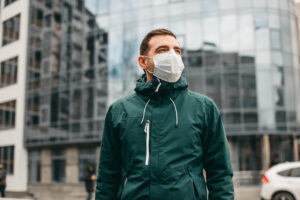Ontario Unveils First Stage to Reopen Economy
 The Ford government has announced details of stage one of its provincial Framework to Reopen, starting on May 19th.
The Ford government has announced details of stage one of its provincial Framework to Reopen, starting on May 19th.
Ontario has focused on workplaces and services that are well-positioned to adopt workplace safety measures, while avoiding overburdening public transit and other services. Business and services permitted to open as part of stage one include:
- All construction
- Retail outside of shopping malls and who can accommodate physical distancing measures
- Vehicle dealerships and retailers
- Media operations
- Scheduled surgeries and some health services
- Recreational amenities
- Individual sports competitions without spectators
- Animal services
- Indoor and outdoor household services
The province also announced additional seasonal services and activities that will be able to reopen (with some conditions) effective May 16th in time for the Victoria Day long weekend, such as golf courses, marinas, and private parks and campgrounds. A full list of stage one openings can be found here.
In addition, Premier Ford indicated that next week the province will provide an update on school closures and childcare, as well as more information regarding social gathering restrictions.
“Cautious, practical and reasonable”
The government cautioned that public health officials will closely monitor stage one, and that they are “ready to react” if there is a sudden increase in cases.
Premier Ford warned that businesses should only open if they’re ready, and Minister of Health, Christine Elliott, indicated that scheduled surgeries and other health care services such as diagnostics planned for a May 19th start are dependent on whether each hospital feels comfortable and if its new operations plan is approved.
As for stages two and three of the province’s reopening plan, the government maintains there is no set timeframe. Public health officials will monitor each stage for two to four weeks to determine if it is necessary to change course, including tightening certain restrictions, extending the stage, or advising that the province can roll-out the next phase.
Looking to other provinces, Quebec has announced elementary schools in the Montreal region will not reopen until September and there is some uncertainty whether Montreal’s businesses will reopen as planned on May 25.
Alberta is proceeding with the first phase of its relaunch, with Calgary and Brooks reopening more slowly than other parts of the province due to wider COVID outbreaks.
Strong focus on PPE
Stage one of the province’s framework makes it clear that face coverings are recommended when physical distancing is not possible. While the province is encouraging continued work from home (WFH) where possible, Ontarians should prepare for the fact that within office settings, retail settings, and generally in any indoor settings, masks will likely become the norm.
To underline this point, the Ford government created a Workplace PPE Supplier Directory, where workplaces can identify companies that sell personal protective equipment and other supplies to keep employees and customers safe.
Province expands testing criteria
To support stage one, Minister Elliott announced that the province will now expand its testing guidelines for COVID-19. To date, Ontario has prioritized testing Ontario’s long-term care residents and staff, with testing to be expanded to “anyone with symptoms.”
Federal Update
Following Monday’s announcement of supports to large businesses, the federal government made a series of smaller announcements this week, largely focusing on addressing gaps in existing business support programs.
- Health Canada has authorized the first serological test to detect COVID-19 antibodies. The COVID-19 Immunity Task Force will be collecting at least one million blood samples over the next two years to track the coronavirus.
- The federal government released further details on how Canada’s six regional development agencies will allocate $962 million through the Regional Relief and Recovery Fund. The fund will help companies and organizations in rural and remote communities and focus on sectors such as manufacturing technology, tourism, and other sectors key to regions and local communities.
- $470 million has been announced to support Canada’s fish harvesters, the largest investment to Canadian fisheries in nearly 20 years. The Fish Harvester benefit will be available to self-employed fish harvesters who cannot access the wage subsidy and provide a maximum benefit equivalent to the wage subsidy. Legislation will be required to implement this program.
- Beginning June 1, a limited number of national parks and historic sites will begin to reopen for limited local visitor access and services, while maintaining physical distancing measures. All camping facilities will remain closed until at least June 21.
- Students can begin to apply for the Canada Emergency Student Benefit as of Friday, May 15. The benefit provides students with $1,250 per month for four months, and $2,000 for students with dependents or a disability.